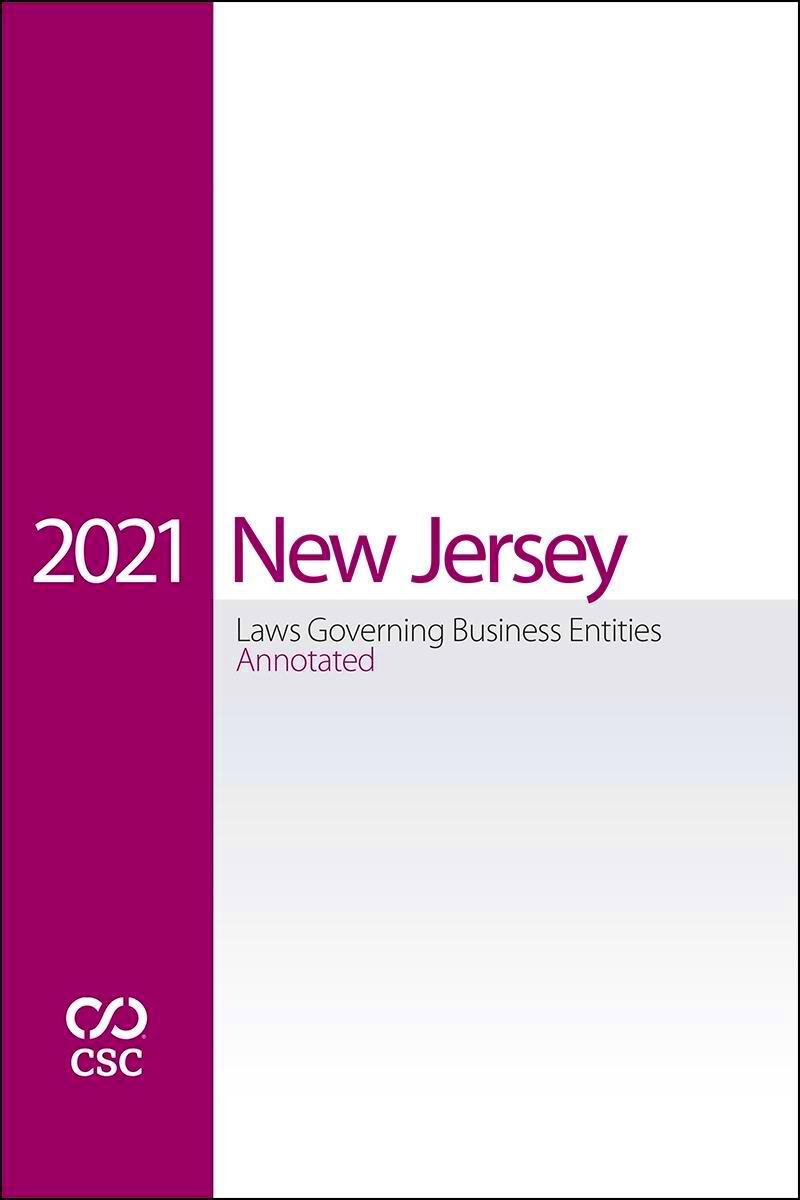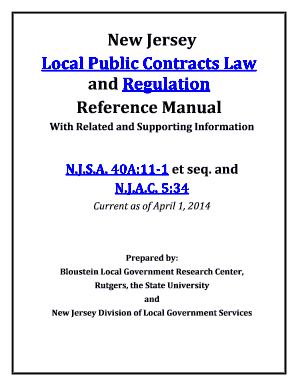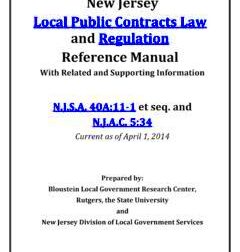Understanding Local Public Contracts Law in New Jersey
Local Public Contracts Law (LPCL) in New Jersey governs how local government agencies procure goods and services. This law ensures that the contracting process is transparent, competitive, and fair. Understanding this law is essential for contractors, vendors, and local officials to navigate public contracting effectively. This post will explore key principles, types of contracts, and provide valuable insights into public contracts in New Jersey.
Key Principles of Public Contracts Law

The Local Public Contracts Law is built on several key principles designed to ensure fair and equitable treatment in public procurement. Here are some essential principles:
- Transparency: All procurement processes must be open to scrutiny, allowing stakeholders to see how contracts are awarded.
- Fair Competition: The law encourages competition among vendors, helping to secure the best value for taxpayers.
- Accountability: Local agencies are responsible for their procurement decisions and must justify their choices to the public.
- Inclusivity: Efforts are made to involve a diverse range of suppliers, including small and minority-owned businesses.
These principles ensure that the contracting process is conducted with integrity, benefiting both the local government and the community it serves.
Types of Local Public Contracts
Local Public Contracts in New Jersey can be categorized into several types based on their nature and purpose. Understanding these types helps contractors know where they might fit in. Here are some common categories:
| Type of Contract | Description |
|---|---|
| Goods Contracts | Contracts for the purchase of tangible items like equipment, supplies, or materials. |
| Services Contracts | Agreements for providing professional services, such as consulting or legal advice. |
| Construction Contracts | Contracts related to building or renovating public structures like roads, bridges, and schools. |
| Joint Contracts | Collaborative agreements between different government entities for shared services or projects. |
Knowing the types of local public contracts helps businesses understand their opportunities and how to prepare competitive bids.
Process of Bidding for Public Contracts
Bidding for public contracts in New Jersey can seem daunting, but it’s a structured process designed to ensure fairness and transparency. Here’s how it generally works:
- Advertisement: Local government agencies must publicly advertise the contract opportunity. This is usually done through newspapers, websites, or official notices.
- Bid Preparation: Interested contractors prepare their bids, which include detailed proposals, pricing, and any required documentation.
- Submission: Bids must be submitted by a specified deadline. It’s crucial to adhere to this timeline to ensure consideration.
- Opening Bids: Once the deadline passes, bids are opened publicly. This promotes transparency and allows all interested parties to see the competing offers.
- Evaluation: Bids are evaluated based on criteria outlined in the advertisement, such as cost, quality, and experience. The evaluation process is designed to select the most advantageous bid for the public.
- Awarding the Contract: After evaluation, the contract is awarded to the selected bidder. An official notification is sent to both the winning bidder and the unsuccessful bidders.
Understanding this process is vital for contractors aiming to secure public contracts. Preparation and attention to detail can make all the difference.
Responsibilities of Local Government Agencies
Local government agencies have several key responsibilities when it comes to public contracts. These responsibilities ensure that the contracting process is fair, transparent, and effective. Here’s a breakdown:
- Compliance: Agencies must adhere to all relevant laws and regulations, including the Local Public Contracts Law.
- Proper Advertising: They must advertise contract opportunities sufficiently to reach potential bidders.
- Transparent Process: Agencies are required to conduct the bidding process openly, providing all necessary information to bidders.
- Fair Evaluation: Bids must be evaluated fairly based on the criteria outlined, ensuring no favoritism or bias.
- Contract Management: Once awarded, agencies must manage contracts effectively, ensuring that work is completed to specification and on time.
- Public Accountability: Agencies must be accountable to the public, justifying their decisions and maintaining transparency throughout the process.
By fulfilling these responsibilities, local government agencies help maintain public trust and ensure that taxpayer dollars are used wisely.
Rights of Contractors and Vendors
Understanding the rights of contractors and vendors is crucial when engaging in public contracts. In New Jersey, these rights are protected to ensure a fair contracting environment. Here’s what contractors and vendors need to know:
- Right to Fair Competition: Contractors have the right to compete fairly for contracts without discrimination.
- Access to Information: Vendors can request information about the bidding process, including evaluation criteria and results.
- Right to Appeal: If a contractor feels wronged, they have the right to appeal the decision regarding the awarding of contracts.
- Timely Payment: Once a contract is fulfilled, vendors have the right to receive payment promptly as outlined in the contract terms.
- Protection of Confidentiality: Contractors have the right to have their proprietary information kept confidential during the bidding process.
- Right to a Debriefing: Unsuccessful bidders can request a debriefing to understand why their bid was not selected, providing valuable feedback for future opportunities.
By knowing their rights, contractors and vendors can better navigate the public contracting landscape and advocate for themselves when necessary.
Common Issues in Local Public Contracts
While public contracting can provide great opportunities, it also comes with its fair share of challenges. Here are some common issues contractors may face:
- Bid Protests: Sometimes, unsuccessful bidders may file protests against the awarding of a contract, claiming unfair practices. This can delay the process and create uncertainty.
- Scope Creep: Once a contract is awarded, changes in project scope can lead to additional costs and disputes if not managed properly.
- Payment Delays: Contractors may experience delays in receiving payment, which can impact cash flow and project timelines.
- Compliance Challenges: Ensuring compliance with various laws and regulations can be overwhelming, especially for smaller businesses unfamiliar with public contracting requirements.
- Quality Control Issues: Maintaining the quality of work specified in the contract can be challenging, especially when multiple subcontractors are involved.
- Limited Access to Information: Sometimes, contractors may struggle to access necessary information about contract opportunities, making it harder to compete effectively.
Being aware of these issues can help contractors prepare and strategize effectively, minimizing potential pitfalls in the contracting process.
Resources for Understanding Public Contracts Law
Understanding public contracts law in New Jersey can feel like navigating a complex maze. Fortunately, several resources can help clarify the process and provide guidance:
- New Jersey Division of Local Government Services: This state agency offers valuable resources, including guidelines, forms, and updates on public contracts law.
- Local Government Websites: Many local agencies maintain websites with information on current contracts, bid opportunities, and procurement procedures.
- Professional Associations: Organizations like the New Jersey League of Municipalities provide training and resources for contractors and government officials alike.
- Legal Resources: Law firms specializing in public contracting can offer expert advice and assistance in navigating legal complexities.
- Workshops and Seminars: Attending local workshops or seminars focused on public contracting can provide valuable insights and networking opportunities.
These resources can empower contractors to understand their rights and responsibilities and ensure compliance with public contracts law.
Frequently Asked Questions
Here are some common questions contractors and vendors may have regarding local public contracts in New Jersey:
- What is the Local Public Contracts Law?
The Local Public Contracts Law governs how local government agencies in New Jersey procure goods and services, ensuring transparency and fairness in the bidding process. - How can I find contract opportunities?
Contract opportunities are typically advertised on local government websites, in newspapers, and through official notices. It’s essential to regularly check these sources. - Can I appeal a contract award decision?
Yes, if you believe the award process was unfair, you can file a bid protest or appeal the decision, following the guidelines set by the agency. - What should I include in my bid?
Your bid should include a detailed proposal, pricing information, relevant experience, and any required documentation specified in the bid advertisement. - Are there opportunities for small businesses?
Yes, the Local Public Contracts Law encourages participation from small and minority-owned businesses to promote diversity in public contracting.
By addressing these questions, we hope to provide clarity and assist contractors in navigating the public contracting landscape effectively.
Conclusion on Local Public Contracts Law
Understanding Local Public Contracts Law in New Jersey is crucial for both contractors and local government agencies. This law promotes transparency, fairness, and accountability in public procurement, which benefits the community as a whole. By familiarizing themselves with the bidding process, their rights, and responsibilities, contractors can navigate the complexities of public contracts more effectively. Resources are available to assist in this journey, ensuring that all parties can engage in the contracting process with confidence. In conclusion, whether you’re a contractor seeking opportunities or a local agency ensuring compliance, a solid grasp of these laws will help foster a successful and trustworthy procurement environment.


